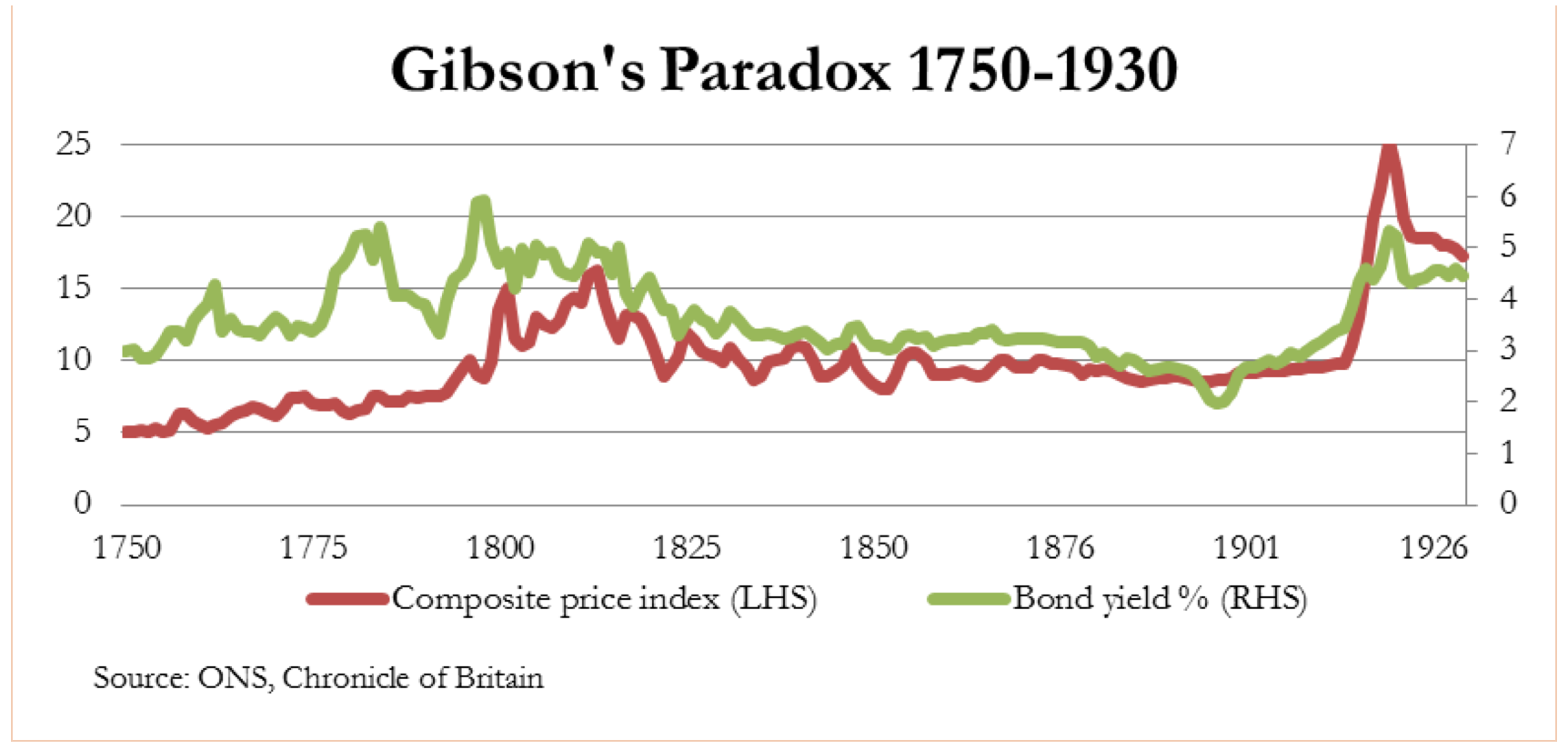“The paradox is one of the most completely established empirical facts in the whole field of quantitative economics.” – John Maynard Keynes
“The Gibson paradox remains an empirical phenomenon without a theoretical explanation” -Friedman and Schwartz
“No problem in economics has been more hotly debated.” – Irving Fisher
Introduction
Two years ago, I found a satisfactory solution to Gibson’s paradox.i The paradox is important, because it demonstrated that between 1750-1930, interest rates in Britain correlated with the general price level, and had no correlation with the rate of price inflation. And as Friedman and Schwartz wrote, a theoretical explanation eluded even eminent economists, so economists preferred to assume the quantity theory of money was the correct guide to the relationship between interest rates and prices. Therefore, the consequence of resolving the paradox is that the supposed linkage between interest rates, the quantity of money and the effect on prices is disproved.
Gibson’s paradox tells us that the basis of monetary policy is fundamentally flawed. The reason this error has been ignored is that no neo-classical economist has been able to establish why Gibson’s paradox is valid, as the introductory quotes tell us. Consequently, this little-know but very important subject is hardly ever discussed nowadays, and it’s a fair bet most of today’s central bankers are unaware of it.
The relationship between interest rates and the general level of prices held until the 1970s. This article summarises why Gibson’s paradox functioned, why interest rates do not correlate with price inflation, and the reasons it failed to be evident after the 1970s.
For ease of reference, here are the two charts reproduced from my original paper that the paradox refers to, the first illustrating the correlation between interest rates and the price level, and the second the lack of correlation between interest rates and the inflation rate in Britain, the only country where such a long run of statistics is available.

…click on the above link to read the rest of the article…







